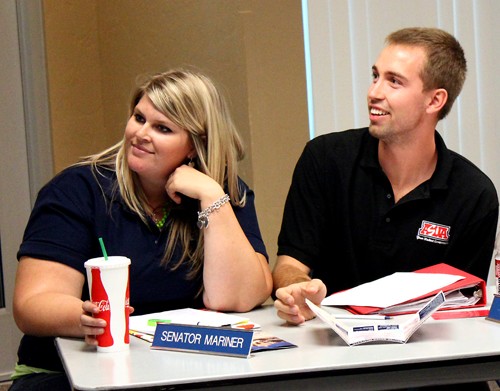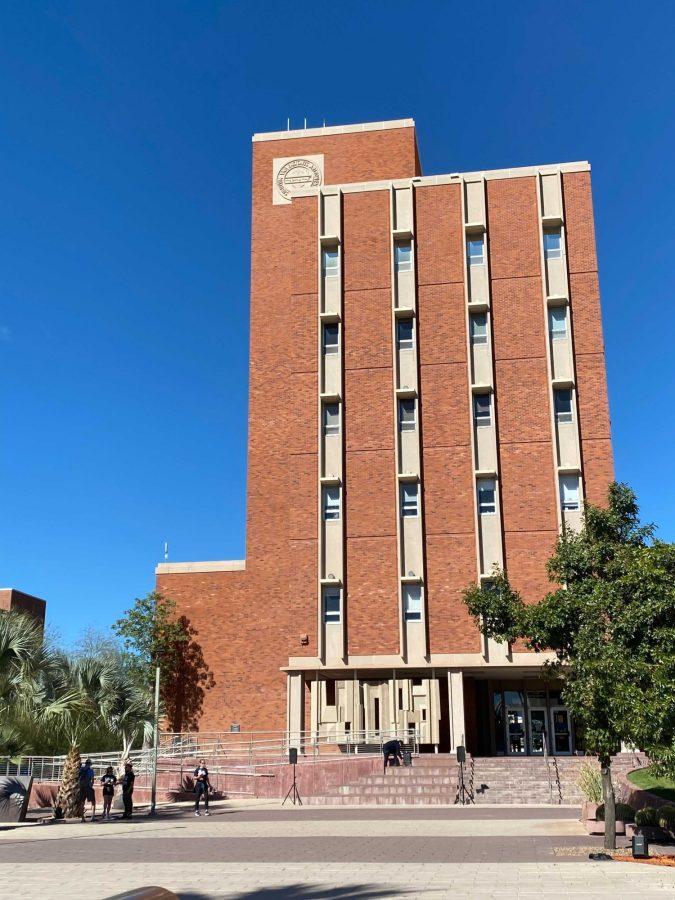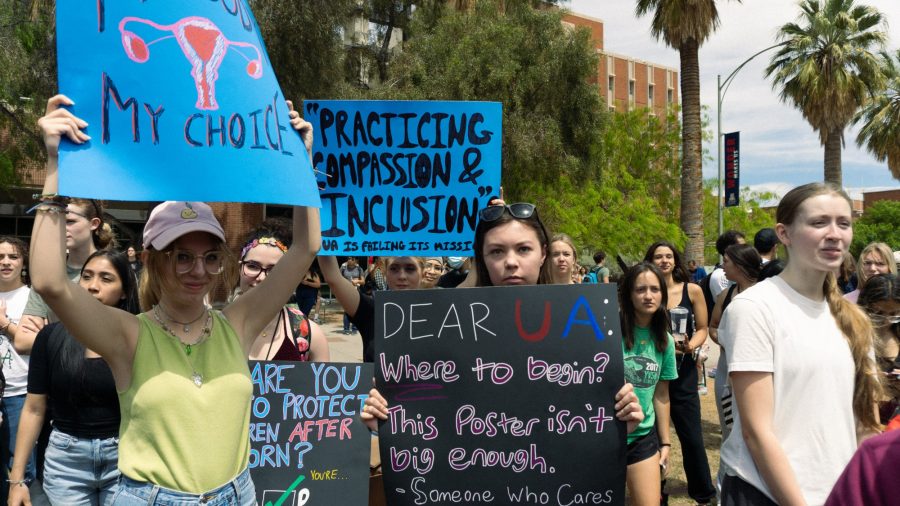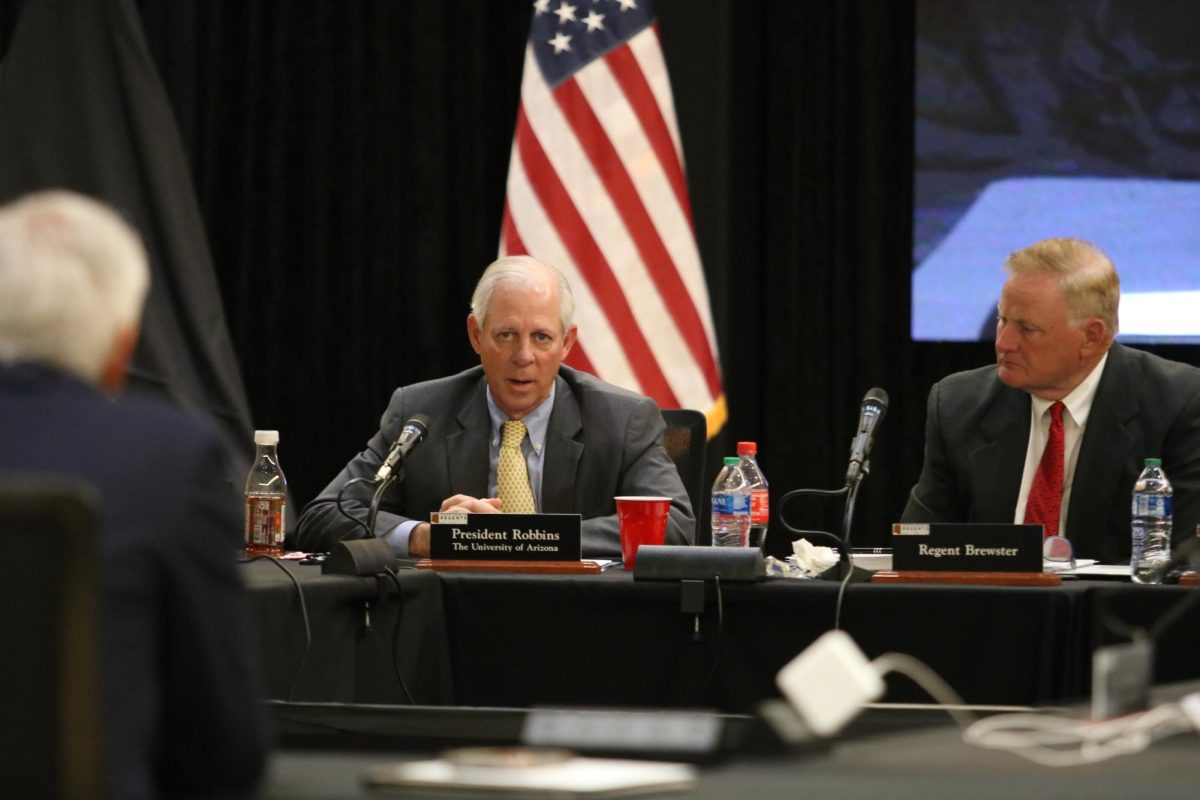Rachel Beech told it straight to the senate – its previous program had to go.
“”The cohorts just weren’t working,”” said Beech, director of new student services in the student transitions office, who spoke to the Associated Students of the University of Arizona Senate at its Wednesday meeting about the office’s new direction for the program.
The cohort program, started in the fall 2009 semester, supported the up to 1,000-student Centennial Hall classes. Cohorts are upperclassmen who guide freshmen through the transition to college as well as through difficult or large classes.
Cohorts from semesters past, however, remained disconnected from incoming students. They were neither enrolled in nor teaching assistants for the classes they were tasked to support, so they could not provide the directed support that students asked for.
A system of support, now deemed Student Affairs Outreach, takes the place of these cohorts in groups that need extra aid or remain disconnected from campus, either Arizona Assurance scholars or students living off-campus their freshman year.
“”We wanted something that helps students’ progress academically,”” Beech said, noting special attention is given to students in high-population freshman classes, such as Spanish 102, Chemistry 151 and Elaine V. Marchello’s Traditions and Cultures 104 general education class.
Weekly “”Wildcat Connection”” emails connect students to “”digital RAs”” as Beech calls them, serving to provide a virtual way to give to students what resident assistants give to on-campus freshman, class help and emotional support.
The emails aid students in the Arizona Assurance program, an individually tailored freshman scholarship program, or those who live off campus during their first year.
Beech’s information was followed by the other informational piece, representatives from the Task Force on Classroom Responders.
“”This effort has been tried before but it didn’t take off,”” said Jim Riley, associate professor of soil, water and environmental sciences and the task force’s chairman.
Bill Neumann, Management Information Systems senior lecturer and director of projects for undergraduate and master’s programs, sat on the first committee and notes this one really had the legs to take off. This, in part, is why he feels they can achieve the goal of standardizing class clickers by the spring 2011 semester.
“”That was what was missing,”” Neumann said of this committee’s thoroughness in the process.
The UA and Arizona State University, would order 10,000 Turning Technologies clickers with this standardization. This large-scale contracting would allow a bundle for students to purchase, with a digital software and physical hardware clicker to use throughout their time at the UA.
“”Look, we’re not saying this is the best one ever, but we are saying it can serve students better over their time here,”” Riley said. “”It’s not a good idea that you should have to have a whole bag of these (clickers) in order to attend school here.””
The senate approved all funding requests, via the Monday consent agenda, which delineates club funding to ASUA-recognized clubs, and the senate aid funding requests for office supplies.
Most of the clubs seeking funding received at least part of their requests. The Jewish Voice for Peace committee tabled its $350 request until next Monday’s meeting, and the Dhamaka Indian Club’s $1,547 request fell below the committee’s usual two-week guidelines for approval and allocation of funds.









